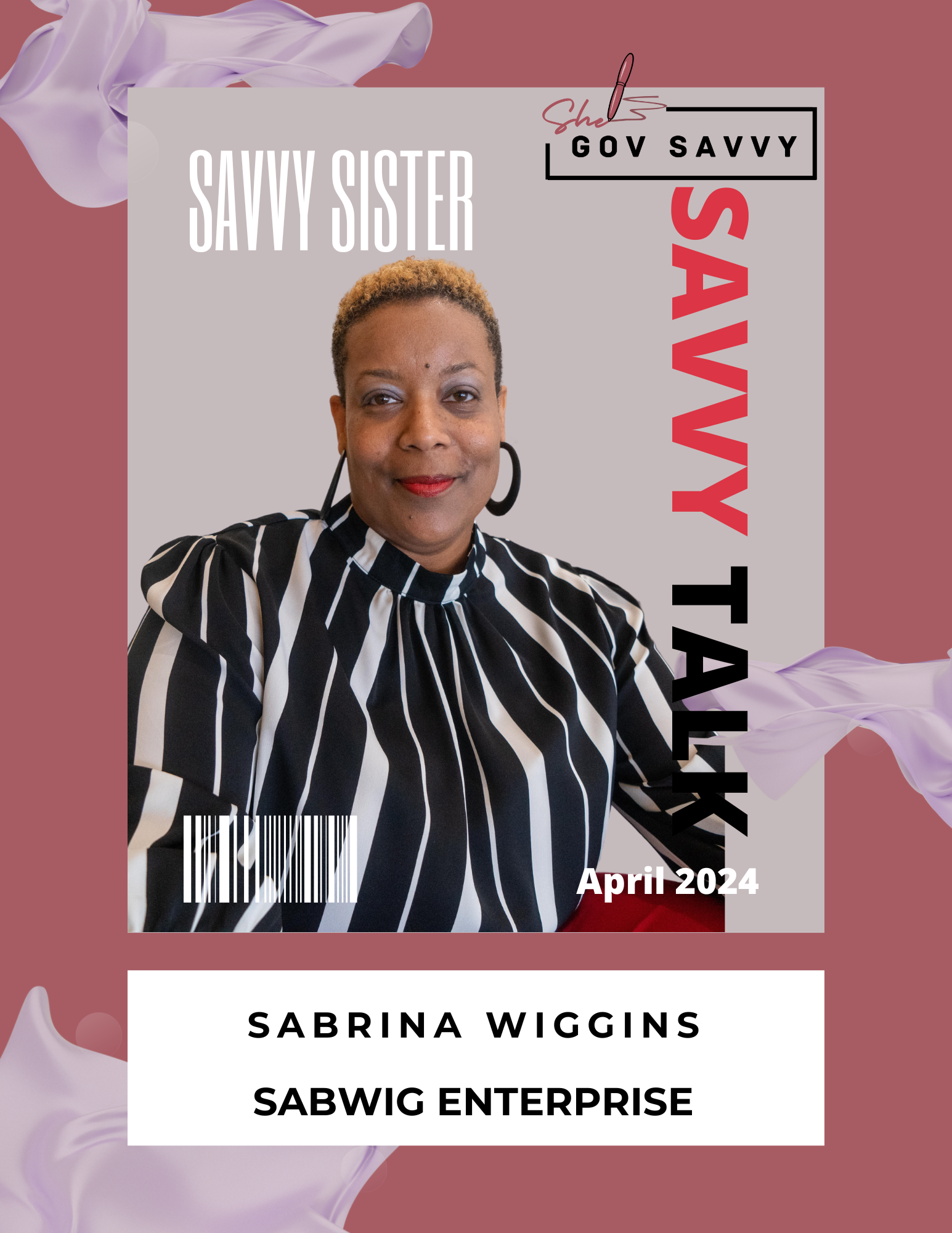April 2024 NEWSLETTER
SAVVY TALK
From the Editor's Desk
Welcome to She Gov Savvy!
Hello Savvy Sisters,
As April unfolds, bringing with it the bloom of spring and a sense of renewal, it also marks two important observances that resonate deeply with our professional and personal lives: National Stress Awareness Month and Financial Literacy Month. This month’s issue of She Gov Savvy is dedicated to fostering a balanced approach to managing stress and maintaining financial health as we pursue our ambitions in the challenging world of government contracting.
Managing Stress in the Pursuit of SuccessIn the high-stakes and often high-pressure environment of government contracting, managing stress isn't just a necessity—it's an essential skill. Recognizing stress and addressing it proactively not only enhances your well-being but also boosts your efficiency and decision-making capabilities. Here are a few strategies to consider:
- Set Clear Boundaries: Work-life balance is crucial. Set clear boundaries to ensure you have time to recharge, which can improve your focus and productivity when you are working.
- Prioritize and Organize: Avoid feeling overwhelmed by breaking down large projects into manageable tasks and prioritizing them based on deadlines and importance.
- Stay Connected: Maintaining a support network can provide emotional and practical support. Don’t hesitate to reach out to colleagues, mentors, or friends when you feel the pressure mounting.
Navigating Financial Health
April, being Financial Literacy Month, is a perfect time to focus on the financial aspects of your business. Keeping your finances in order ensures not just the health of your business, but also your peace of mind. Here are some tips to keep your financial goals on track:
- Educate Yourself: Understanding the basics of financial management can empower you to make informed decisions. Consider workshops or courses focused on financial literacy.
- Plan for the Future: Regular financial planning sessions can help you set clear goals and develop strategies to achieve them, mitigating financial stress in the long run.
- Monitor and Adjust: Keep a close eye on your financial status and adjust your strategies as needed. This proactive approach can prevent financial issues from becoming overwhelming.

A Call to Thrive
As we navigate the dual challenges of managing stress and maintaining financial health, let's remember that our greatest strength lies in our ability to adapt and overcome. This April, let us commit to not only surviving but thriving, by taking control of our stress and our finances.Thank you for being an integral part of the She Gov Savvy community. Here’s to a productive, balanced, and insightful month ahead.
Warm regards,
Sabrina Wiggins
Editor-in-Chief
She Gov Savvy
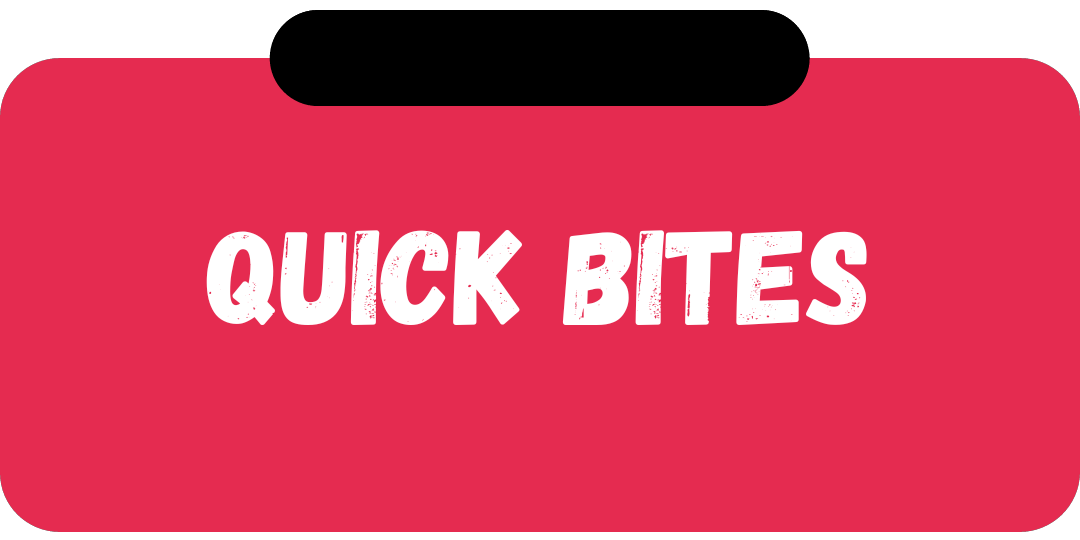
The 2024, $1.2 trillion spending bill provides opportunities.
- Small Business Support: The bill earmarks funds to support small businesses, including specific set-asides for minority and women-owned businesses, which could benefit from direct contracts or subcontracting opportunities.
- Procurement and Contract Opportunities: The spending bill is expected to lead to a range of new RFPs (Requests for Proposals), RFQs (Requests for Quotations), and IFBs (Invitations for Bid) across all government sectors. Contractors should monitor SAM.gov and other procurement portals.
- Compliance and Regulations: With increased spending, government contractors should anticipate stricter compliance and oversight. Familiarity with federal contracting regulations and adherence to new guidelines will be critical.
For government contractors, the 2024 spending bill represents a wealth of opportunities but also comes with the need for diligent preparation and strategic planning. Staying updated on specific allocations and upcoming solicitations, understanding the regulatory environment, and preparing competitive bids are essential steps to take advantage of the new government spending landscape.
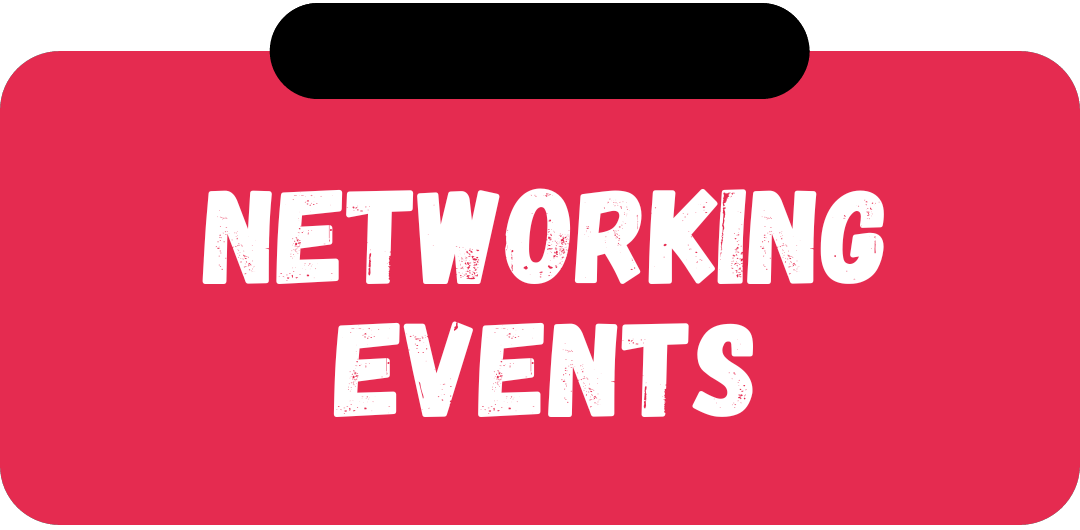
Government Contracting- April 16, 2024
Let the Small Business Administration (SBA), help you get “procurement-ready” to market your firm’s products and services to the Federal Government through our Resource Partners Network. Click here for more details.
Basics of SBA's 8(a) Business Development Program and SAM Registration - April 17, 2024
Minority GovCon Business Summit- April 19-20, 2024
Click here for more details.
Selling to The Federal Government - April 25, 2024
The Federal Government is the largest purchaser of goods and services in the world. Learn how your small business can market services or goods to the Federal Government!. Click here for more details.
Resources for Small Businesses – SBDC, WBC, VBOC and APEX Accelerators #NSBW - April 29, 2024
To Celebrate National Small Business Week, join us for a session to learn about valuable resources available in Minnesota, North Dakota and South Dakota. Representatives from the Small Business Development Center (SBDC), Women's Business Center (WBC), Veterans Business Outreach Center (VBOC) and the APEX Accelerator will be speaking. Click here for more details.
HHS (Health and Human Services) - April 9, 2024
May 14, 2024: Vendor Engagement Session (VES) - Open to all small and socioeconomic businesses. Click here for more details
The Importance of Understanding the RFP
When it comes to government contracting, the Request for Proposal (RFP) is a critical document that outlines the government's specific needs and requirements for a particular contract. Understanding the RFP in detail is essential for submitting a competitive and compliant bid. Here's a breakdown of why understanding the RFP is so crucial and how to effectively approach it.
The Role of the RFP
An RFP provides all the necessary information you need to know to prepare a proposal. It typically includes the scope of work, the criteria for selection, submission deadlines, and the terms and conditions of the contract. The government uses the RFP to assess the capabilities and offerings of different vendors and to ensure that the selected vendor can meet their needs efficiently and effectively.
Key Points:
- Thoroughly Read and Comprehend: Start with a comprehensive read-through of the entire RFP. Understand every requirement and how it relates to your business capabilities. This understanding forms the foundation of your proposal.
- Identify Key Requirements and Criteria: Highlight and prioritize the key deliverables, mandatory requirements, evaluation criteria, and any specific qualifications or certifications needed. These are the aspects of your proposal that will be scrutinized closely by the reviewers.
- Ask Questions: If anything in the RFP is unclear, don't hesitate to ask for clarification. Most RFPs will include a point of contact for inquiries. Getting clear answers can prevent misunderstandings that could lead to a non-compliant proposal.
- Customize Your Response: Tailor your proposal specifically to meet the needs and requirements outlined in the RFP. Avoid generic responses. Show the evaluators how your specific skills, experience, and understanding of the project make you the best choice.
- Focus on Solutions: Demonstrate your problem-solving skills by not only addressing the requirements but also by suggesting innovative solutions or improvements that could benefit the project. This approach can distinguish your proposal from others.
- Review Compliance and Submission Details: Ensure that your proposal adheres to the formatting, packaging, and delivery instructions specified in the RFP. Non-compliance with these details can lead to your proposal being disqualified before it is even reviewed.
Takeaway
Understanding the RFP is not just about reading and responding—it’s about comprehensively analyzing the document to align your proposal with the government agency's needs and demonstrating your capability to meet those needs effectively. It requires attention to detail, critical thinking, and a strategic approach to proposal writing. By mastering the RFP process, you enhance your chances of winning the contract and establishing a successful relationship with the government.
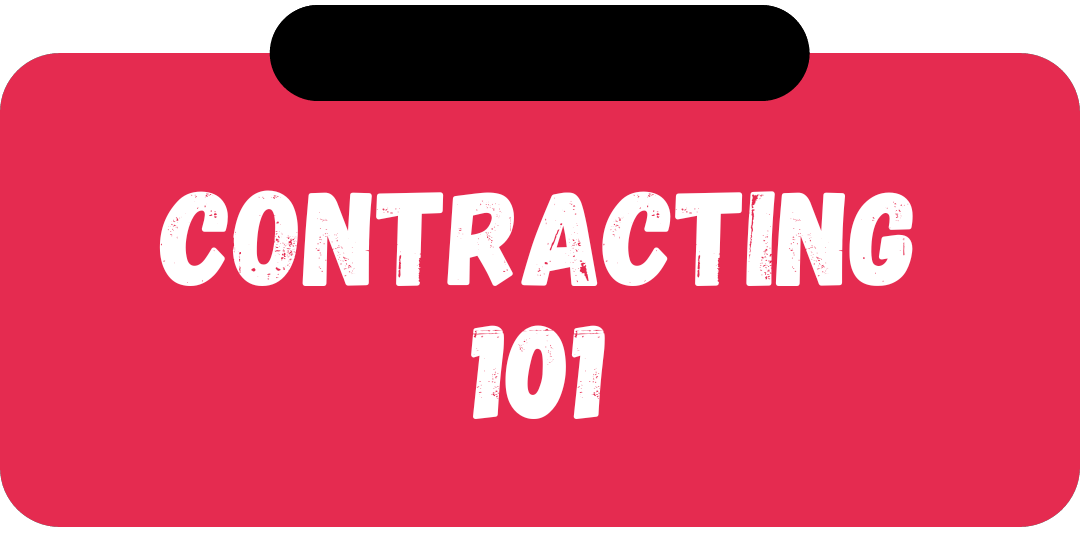
FEATURE OF THE MONTH
As the CEO and founder of SABWIG Enterprise, I manage local state government contracting projects while also working full-time as a Federal Financial Management Analyst Supervisor. In addition to these roles, I also take care of my six-year-old grandson. These responsibilities have allowed me to develop my leadership, education, and empowerment values, which I honed during my service as a United States Navy veteran.
I launched SABWIG Enterprise with the goal of transitioning from corporate life to entrepreneurship. My team and I have secured several state contracts, including shopping contracts as the prime contractor and school repairs and maintenance jobs as a subcontractor. Before winning these contracts, I taught myself the DLA Internet Bid Board System (DIBBS), and later found a mentor to deepen my understanding and share it with others.
Balancing my full-time job with my entrepreneurial and personal responsibilities demonstrates my belief in using existing resources to transition smoothly into entrepreneurship. I believe in leveraging the resources from your current job to fuel your entrepreneurial dreams, which can be more cost-effective than starting from scratch. Taking advantage of leadership opportunities in your corporate role can also save significant personal investment later.
In addition to my work in government contracting, I have authored children's books, such as "Career Day" and "When My Dad Went to the Hospital," which aim to inspire and educate youth.
This journey has been challenging but deeply fulfilling, guiding me toward entrepreneurship and a life enriched with purpose and the empowerment of others. For newcomers to government contracting, I always advise taking their time with the process. Government contracting is complex and governed by strict rules, so understanding the process is crucial before aiming for more significant wins. Each small victory sets the stage for more extraordinary achievements.
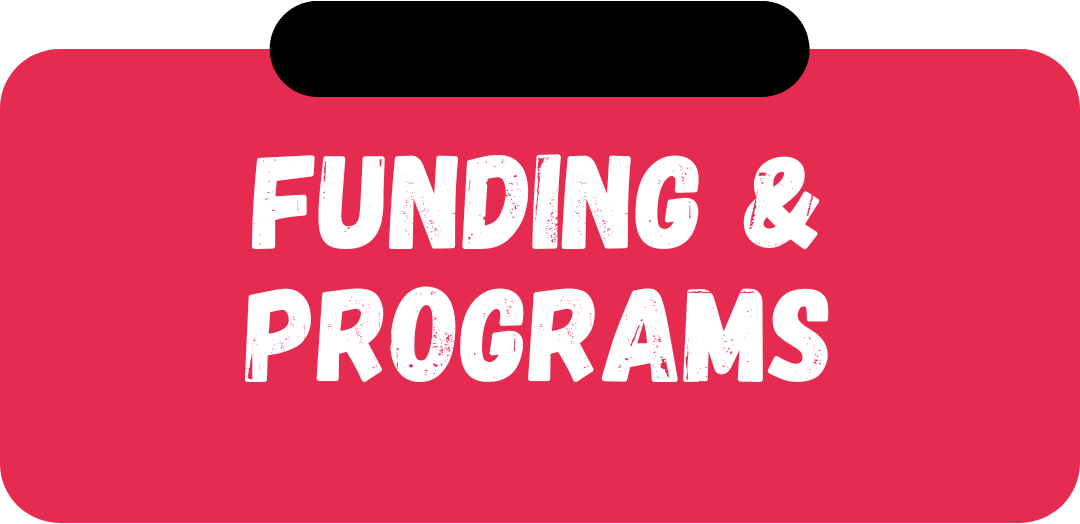
Cartier Women's Initiative (7/3/24)
Open to women-run and women-owned businesses from any country and sector that aim to have a strong and sustainable social and/or environmental impact. - Click here to learn more
GrowNY - Pitch Competition (5/15/24)
The Grow-NY business competition provides funding, mentorship, business development support, and other key resources to leading food and ag startups from across the globe. Innovative startups are encouraged to apply for their chance to win up to $1 million. A total of $3 million in prizes will be awarded to seven startups. - Click here to learn more
TiE Global Program for Women - Pitch Competition 6/15/24
If you are a woman entrepreneur with a passion for innovation and a drive to make a difference, then apply for the TiE Women Program 2024, an incredible opportunity for women founders to showcase their innovative business ideas on a global stage. - Click here to learn more
American Dream Grant: 4/30/2024
The American Dream Awards celebrate small businesses embodying the modern American Dream. Open to all US for-profit businesses, recipients get $1,000, a business accelerator, media exposure, and more - Click here to learn more
BeMobile Verizon Take the Leap grant - Deadline: 4/30/2024
Applicants must be at least 18 years old and legally eligible to operate a business. - Click here to learn more
Awesome Foundation (Monthly)
Foundation distributes $1,000 grants, no strings attached, to projects and their creators. At each fully autonomous chapter, the money is pooled together from the coffers of ten or so self-organizing “micro-trustees”. Awarded monthly - Click here to learn more
IMPACT grants (Quarterly)
Primary goal of grant is to fuel the endeavors of businesses and nonprofits that are actively making a significant IMPACT within their communities and beyond. Open to US and Canada-based organizations. Funding of $1,000 - Click here to learn more
Truist NonProfit Grant (Quarterly)
The Truist Foundation supports nonprofits with grants that target leadership development, economic mobility, thriving communities and educational equity. - Click here to learn more
HerRise Micro-Grant (Monthly)
The HerRise Micro-Grant provides financial assistance, with the help of our corporate sponsors and donors, to women of color creating innovative solutions that impact their community and that are often unable to secure funding for their small business. - Click here to learn more
Kitty Fund - Helping Mompreneurs
Founder identifies as a mother. Business annual revenue does not exceed $5M. Business must be located in the United States. Grant for $500. Apps open in March 2024 - Click here to learn more
ZenBusiness Free LLC Formation for Moms
To help mothers take the first step toward entrepreneurship, ZenBusiness is covering business formation costs and will help entrepreneurs form an LCC, track expenses, secure a business name, and more. - Click here to learn more
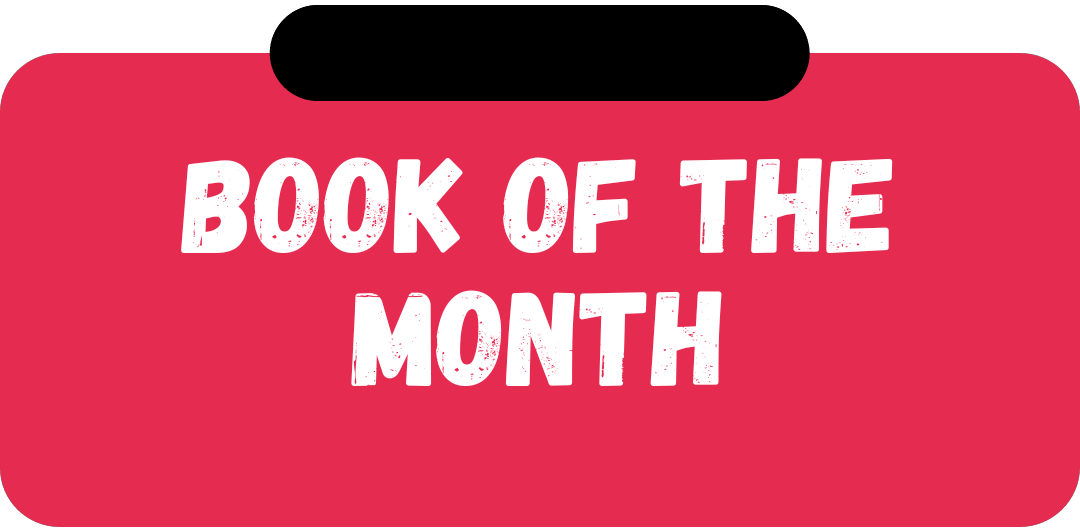

In Never Finished, Goggins takes you inside his Mental Lab, where he developed the philosophy, psychology, and strategies that enabled him to learn that what he thought was his limit was only his beginning and that the quest for greatness is unending.
The stories and lessons in this raw, revealing, unflinching memoir offer the reader a blueprint they can use to climb from the bottom of the barrel into a whole new stratosphere that once seemed unattainable. Whether you feel off-course in life, are looking to maximize your potential or drain your soul to break through your so-called glass ceiling, this is the only book you will ever need.
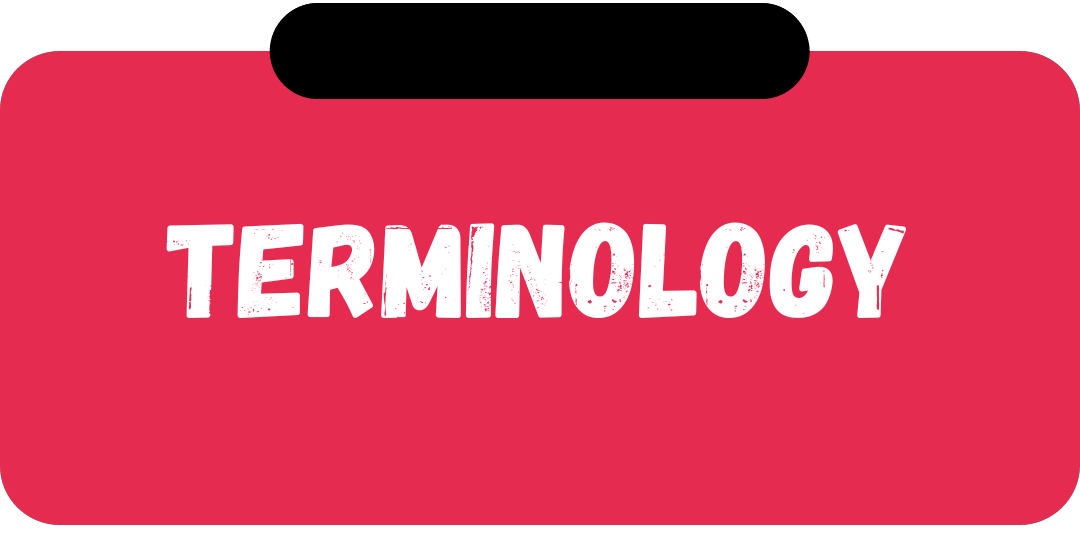
Class Determinations and Findings: A determination and findings that provides authority for a class of contracting actions. A class may consist of contracting actions for the same or related supplies or services or other contracting actions that require essentially identical justification. The findings must fully support the proposed action either for the class as a whole or for each action. The class determination and finding must be for a specified period, with the expiration date stated in the document. (FAR 1.703)
Code of Ethical Conduct: A code set forth in E.O. 11222, which reads ''Where Government is based on consent of the governed, every citizen is entitled to have complete confidence in the integrity of his Government. Each individual officer, employee, or advisor of Government must help to earn and must honor that trust by his own integrity and conduct in all official actions.'' (Executive Order 11222)
Component: Any item supplied to the Federal Government as part of an end item or of another component. (FAR 2.101)
Consent to Subcontract: The Contracting Officer’s written consent for the prime contractor to enter into a particular subcontract. (FAR 44.101)
The requirement for the Contracting Officer responsible for contract administration to consent to identified subcontract actions: (A) If the contractor has an approved purchasing system, consent is required for subcontracts specifically identified by the Contracting Officer in the subcontracts clause of the contract. (B) If the contractor does not have an approved purchasing system, consent to the subcontract is required for cost-reimbursement, time-and-materials, labor- hour, or letter contracts, and also for many unpriced actions (including unpriced modifications and unpriced delivery orders) under fixed-price contracts that exceed the simplified acquisition threshold. (FAR 44.201-1)
Contingency: A possible future event or condition arising from presently known or unknown causes, the outcome of which is indeterminable at the present time. (FAR 31.205-7(a))
Contingent Fee: Any commission, percentage, brokerage, or other fee that is contingent upon the success that a person or concern has in securing a Government contract. (FAR 3.401)
We want to hear from you! Have questions you want answered? Got a topic you'd like us to cover? Reach out to us at editor@shegovsavvy.com or engage with us on social media using the hashtag #SheGovSavvy #SavvyGovSisters #SavvyTalk #SavvySisters
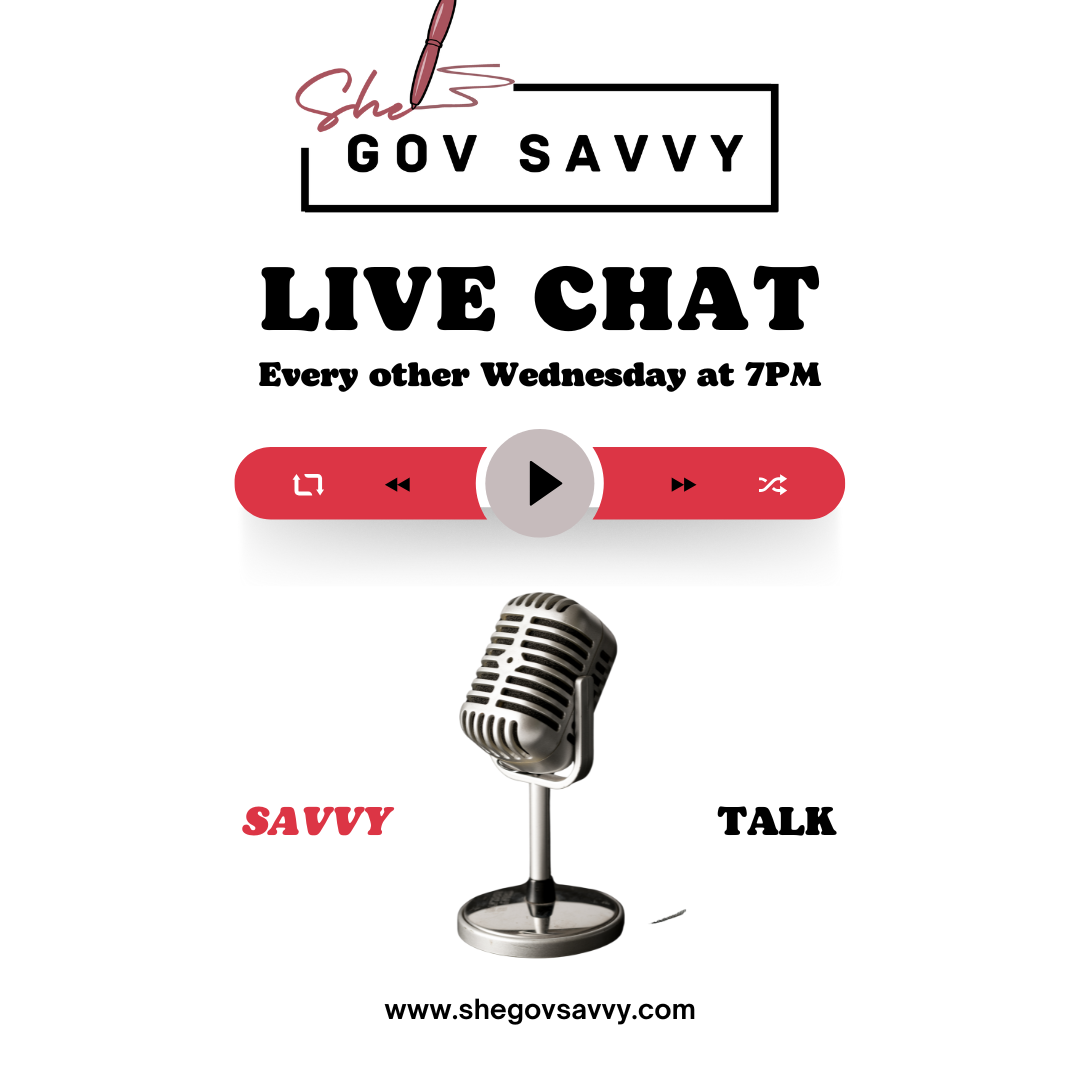
Join us via Facebook live as we talk about Government Contracting and so much more. We will be launching our YouTube channel very soon. Our next two Savvy Talk lives will be April 17th and May 1st. Make sure you join us or catch the replay.
Free Resources
Small Business Development Center (SBDC)
Apex Accelerators
Women Business Centers
© 2023 She Gov Savvy, All Rights Reserved.
